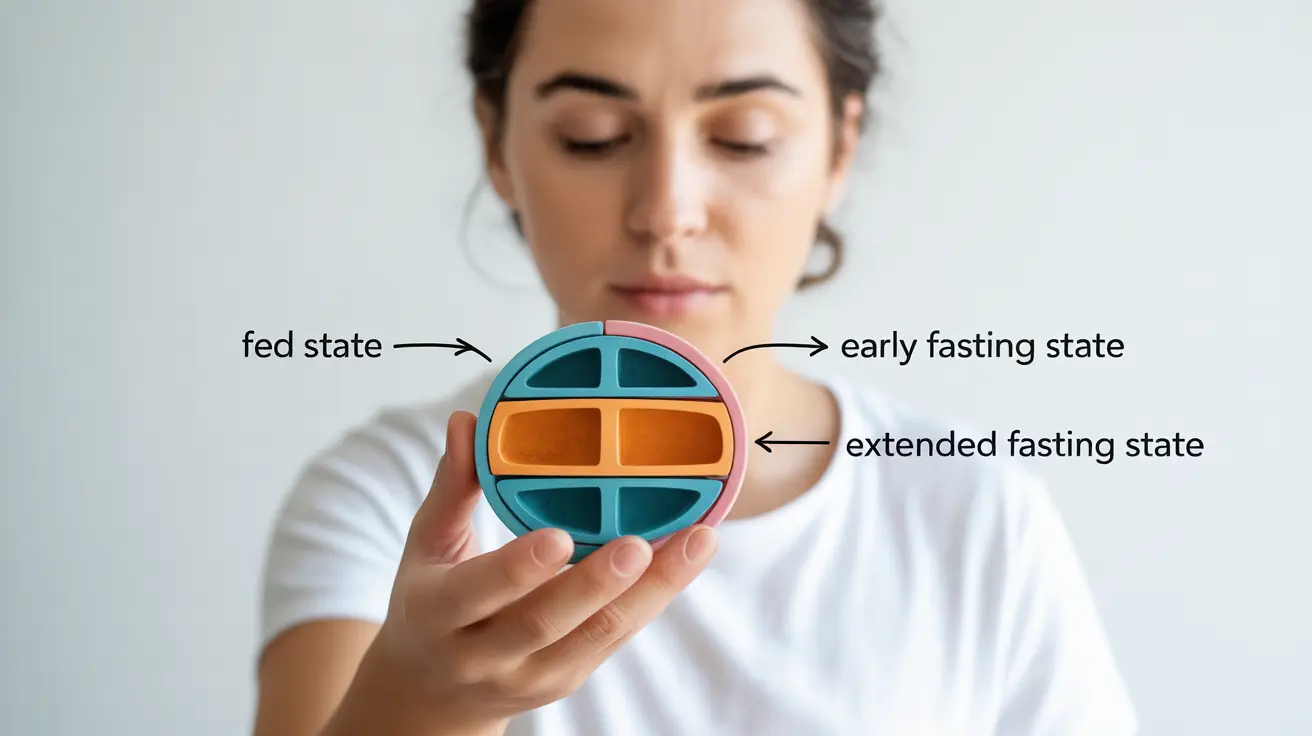Many people considering intermittent fasting (IF) worry about its potential effects on their metabolism. It's a valid concern, as traditional restrictive diets often lead to metabolic slowdown. However, the relationship between intermittent fasting and metabolism is more complex and, surprisingly, quite different from conventional dieting approaches.
Understanding how intermittent fasting affects your metabolic rate is crucial for making informed decisions about your weight loss journey. Let's explore the science behind IF and metabolism, backed by recent research and expert insights.
The Science Behind Intermittent Fasting and Metabolism
Contrary to popular belief, short-term fasting can actually boost metabolic rate through various physiological mechanisms. During fasting periods, your body undergoes several adaptations that help maintain energy balance and preserve muscle mass.
Research shows that fasting for periods of 16-48 hours can increase metabolic rate by 3.6-14%, primarily through the release of norepinephrine, a hormone that helps maintain energy expenditure during periods without food.
Metabolic Adaptations During Fasting
When you fast, your body transitions through several metabolic states:
- Fed state (0-3 hours after eating)
- Early fasting state (3-18 hours after eating)
- Extended fasting state (18+ hours)
During these transitions, your body activates various metabolic pathways that help preserve muscle mass and maintain energy levels, including increased growth hormone production and enhanced insulin sensitivity.
Impact on Long-term Metabolic Health
Unlike continuous calorie restriction, intermittent fasting may help prevent the metabolic slowdown typically associated with traditional dieting. This is partially due to its effects on hormones that regulate metabolism, including insulin, norepinephrine, and growth hormone.
Hormonal Benefits of Intermittent Fasting
Several key hormonal changes occur during intermittent fasting that can positively impact metabolism:
- Increased growth hormone production
- Improved insulin sensitivity
- Enhanced norepinephrine release
- Better leptin responsiveness
Muscle Preservation During Fasting
One common concern is whether intermittent fasting leads to muscle loss. Research suggests that when done correctly, IF can actually help preserve muscle mass while losing fat, especially when combined with resistance training and adequate protein intake.
Strategies to Maintain Muscle During Fasting
To optimize muscle preservation while fasting:
- Maintain regular strength training
- Consume adequate protein during eating windows
- Stay hydrated during fasting periods
- Break fasts with protein-rich meals
Frequently Asked Questions
Does intermittent fasting slow down your metabolism compared to regular dieting?
Research suggests that intermittent fasting may actually help preserve metabolic rate better than traditional continuous calorie restriction. Short-term fasting can temporarily increase metabolism through hormonal changes and improved insulin sensitivity.
How does intermittent fasting affect weight loss and metabolic rate?
Intermittent fasting can support weight loss while maintaining metabolic rate through increased fat oxidation and hormonal optimization. Unlike continuous calorie restriction, IF may help prevent significant metabolic slowdown during weight loss.
Can intermittent fasting increase muscle loss while trying to lose weight?
When properly implemented with adequate protein intake and resistance training, intermittent fasting typically doesn't lead to significant muscle loss. The elevated growth hormone levels during fasting periods can actually help preserve muscle mass.
What hormonal changes occur during intermittent fasting that impact metabolism?
During fasting, there are increases in growth hormone, norepinephrine, and improved insulin sensitivity. These hormonal changes help maintain metabolic rate and support fat burning while preserving muscle tissue.
Is intermittent fasting better than continuous calorie restriction for maintaining metabolism long term?
Evidence suggests that intermittent fasting may be more effective than continuous calorie restriction for maintaining long-term metabolic rate. IF appears to cause less adaptive thermogenesis (metabolic slowdown) compared to traditional dieting approaches.




